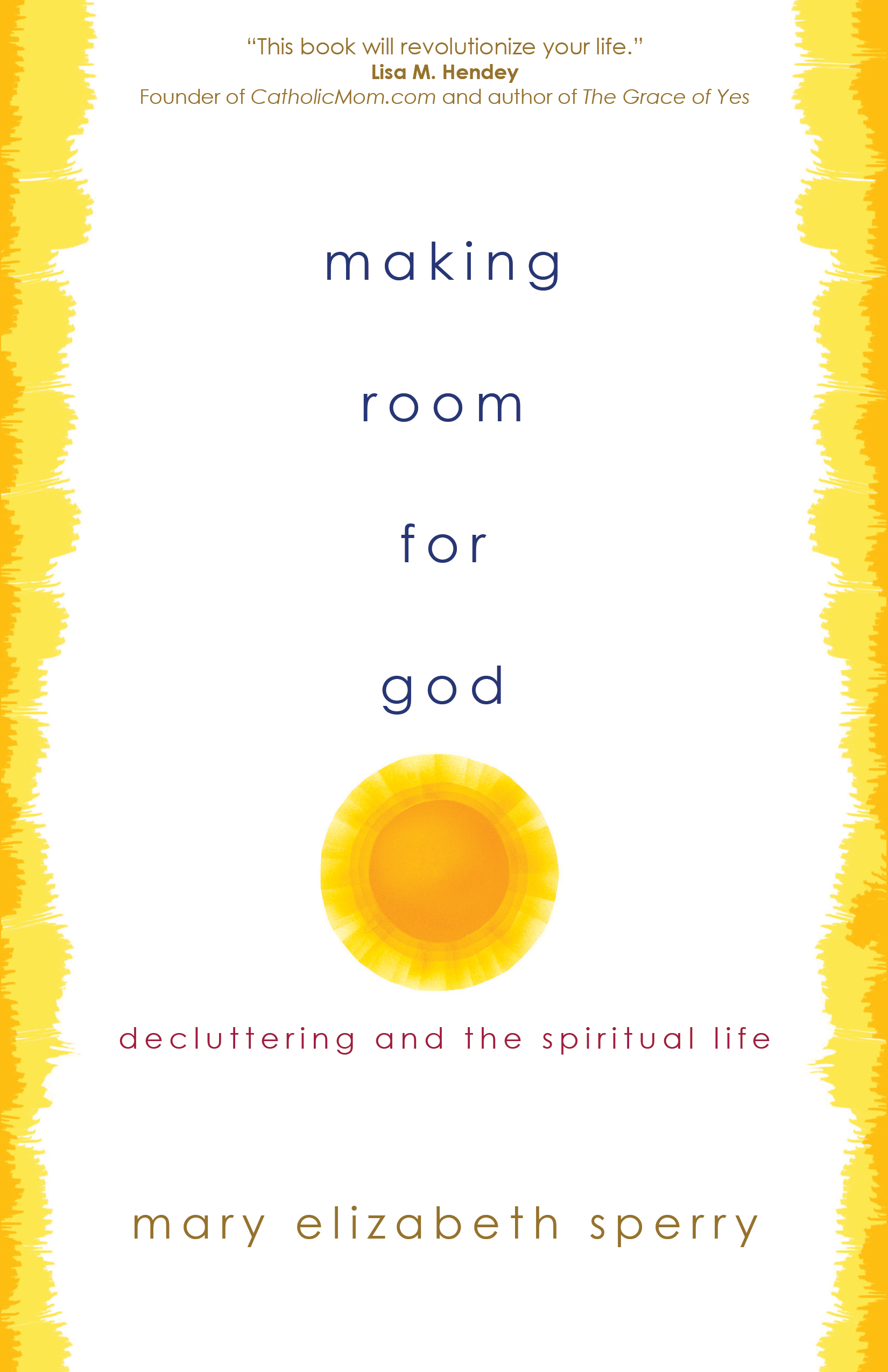 I’m excited to welcome a guest post on the blog today from author Mary Elizabeth Sperry. Mary has worked for the United States Conference of Catholic Bishops since 1994, and is the author of five books. Mary’s brand new book, Making Room for God: Decluttering and the Spiritual Life, was just released two weeks ago. Anyone who knows me knows that I can get quite excited about *decluttering*. 🙂 I appreciate Mary’s perspective on the topic, and I’m happy to have her on the blog talking about decluttering in our spiritual lives. Enjoy!
I’m excited to welcome a guest post on the blog today from author Mary Elizabeth Sperry. Mary has worked for the United States Conference of Catholic Bishops since 1994, and is the author of five books. Mary’s brand new book, Making Room for God: Decluttering and the Spiritual Life, was just released two weeks ago. Anyone who knows me knows that I can get quite excited about *decluttering*. 🙂 I appreciate Mary’s perspective on the topic, and I’m happy to have her on the blog talking about decluttering in our spiritual lives. Enjoy!
There’s no question that clutter is a real problem for a significant number of Americans – whether they need to rent a storage space, pay late fees on the bill, lost in the pile of unopened mail, or leave the car out in the weather because there’s no room in the garage. Decluttering has become a social trend. (For once in my life I’m part of a trend! Who knew?) Books about tidying up and Swedish death cleaning (!) sit on the best-sellers chart. With the beginning of Lent, my newsfeed is full of people taking the challenge to give away forty things in forty days. Some go even further – seeking to remove forty bags of possession from their homes during the Lenten season.
But using Lent as a reason to declutter doesn’t make decluttering a spiritual practice. People of any faith – or no faith at all – can decide to deal with the stuff that they trip over every time they need to do laundry. Does decluttering have a spiritual side? Does the state of our closets have anything to say about the state of our souls? Does God really care that we’re storing half-finished craft projects in the dining room?
Of course, he does! The God who has counted every hair on our heads and who knows when a sparrow falls cares deeply about the things that matter to us and that shape our daily lives. The most fundamental claim of Christianity is the Incarnation, that in Jesus, the all-powerful God who is the source of all beauty and goodness became a human being – just like us, except for sin. Jesus entered into the messiness of everyday life, preparing and eating food, learning a trade, and doing the chores necessary to keep a house running. Because of that, even the humblest task has meaning in the eyes of God.
Being a person of faith isn’t something you can keep in a box, taking it out for an hour or so on Sunday mornings, when it’s time to say grace before meals, and on the occasional holiday. The relationship with God that is at the heart of the Christian faith has to expand so that it reaches every aspect of our lives, even what we keep in our closets and what we give away. It’s more than saying a quick prayer before we begin decluttering or praying for the strength to finish (and to get the box of unused toys out of the house before the kids decide they are favorites – despite the fact that they haven’t been outside the toybox in eight months).
Decluttering as a person of faith means setting the reset button on our relationship with our possessions. We have to look honestly at what we’ve accumulated and humbly recognize the sinful tendencies (envy, greed, etc.) that lead us to acquire more than we need. We need to nurture gratitude for the things we have, regarding them as a gift of God that we can share generously with those in need.
Changing our relationship with our possessions will change the way we interact with other people as well. When we break the pattern of acquiring more than we need and tossing things away when they are no longer useful, how much easier will it be to recognize that people aren’t disposable and that they always take precedence over things? Freed from the race to acquire more and to protect what we have, we can take more time to be with others, to listen, and even to be silent. And as we learn to be more generous with what we have been given, we learn to trust that God will provide for all our needs.
Copyright 2018 Jessica Ptomey
